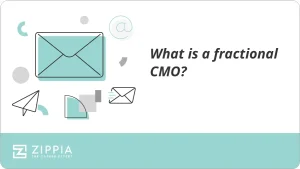
Imagine AI tools providing customized content and ads based on customer behavior and preferences in real time, or chatbots powered by AI handling customer support inquiries instantly for instantaneous assistance.
Digital marketers can leverage marketing automation AI to optimize campaigns, increase ROI and gain a competitive advantage. However, successful implementation requires careful planning.
Personalization
One of the major advantages of marketing automation for businesses is that it allows them to tailor messaging specifically for each customer. This can be accomplished using AI to analyze customer data and behaviors and then creating tailored messages more likely to resonate with each one. Such tailored marketing can result in higher engagement rates and customer loyalty, leading to better conversion rates overall.
AI marketing tools can also assist marketing teams by automating certain repetitive tasks that would otherwise consume their time, freeing up more of their attention for strategic projects like creating new marketing campaigns.
As AI marketing programs are implemented, human oversight remains crucial in order to detect any data biases or errors which might compromise its effectiveness, as well as ensure privacy and security protocols are being followed by the program.
Automation
Marketing automation tools enable your team to concentrate on more strategic tasks by automating tedious repetitive tasks, thus saving both time and money while providing your audience with highly tailored, personalized content, boosting ROI.
AI marketing automation uses machine learning algorithms to efficiently scan massive amounts of data and recognize patterns and trends, making it faster and simpler for marketers to make informed decisions regarding their strategies and customer targeting tactics. AI marketing automation may also assist marketers in identifying high-value customer segments and optimizing campaigns.
When selecting AI marketing automation tools, it’s crucial that you are clear about what you require them for and choose one that integrates well with existing processes. A knowledge audit may also be conducted in order to identify any skillset gaps on your team so you can choose a tool which effectively fills them – and testing out its capabilities beforehand would also be prudent.
Optimization
Once marketers have an understanding of their goals, they can explore AI marketing tools and machine learning programs that can assist them with automating tasks, increasing productivity, providing customized content to customers and expanding sales. Before setting out on this journey it’s essential that one knows exactly what they are searching for as there can be so many different options out there it can become daunting to decide where to look first.
Utilizing AI for marketing automation enables digital marketers to streamline and automate many time-consuming tasks such as local targeting, data analysis and predictive analytics. AI also gives digital marketers insights into their customer segments by processing data and recognizing trends and opportunities.
Macy’s and H&M both utilize an AI-powered chatbot on their websites and social media to assist with inquiries 24/7 and recommend products, while Macy’s uses AI to identify fashion trends and customer preferences to develop personalized emails that resonate.
Analytics
Marketing automation tools can be powerful tools for streamlining and optimizing marketing campaigns, but it is crucial to set clear goals first before looking for the solution that fits. Doing this will allow you to find one that meets all of your requirements perfectly.
AI marketing platforms provide AI marketers with insights into customer data by revealing patterns and trends that help them fine-tune marketing strategies and campaigns for increased performance and a greater return on investment.
Ford uses artificial intelligence to develop email campaigns that align with customers’ preferences and interests, leading to higher engagement and conversion rates as well as improving customer satisfaction and loyalty through tailored content and product recommendations. AI-powered marketing automation tools also use this approach by automatically segmenting audiences based on location, past behavior and demographic data – leading to more tailored and relevant messages being delivered for greater conversions and overall revenue growth.








